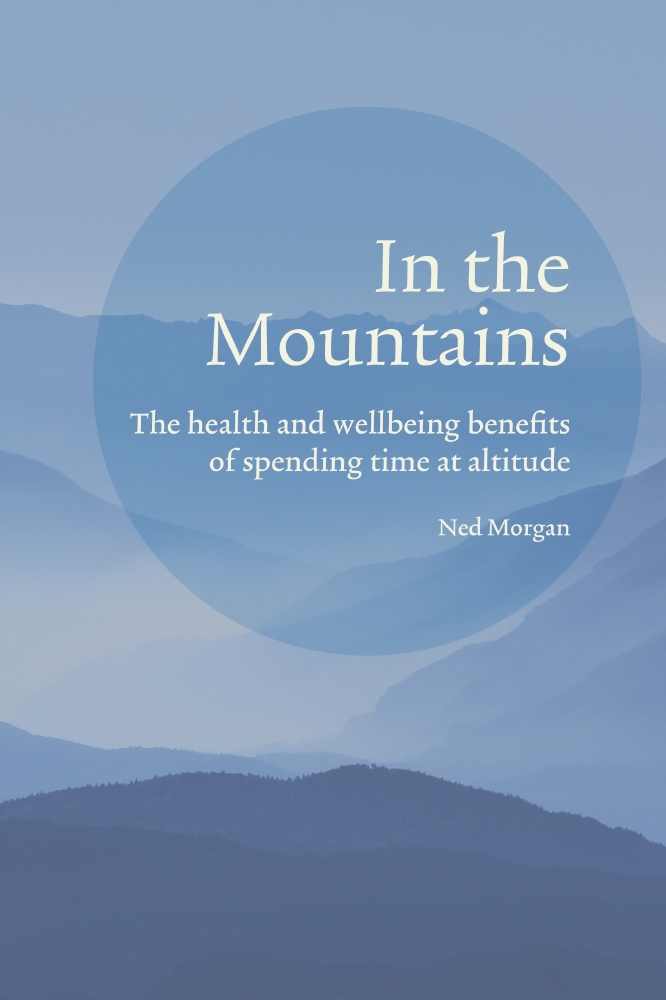by Ned Morgan

In The Mountains
In myth and religion, mountains represent the holy because they rise above the world of flawed, earth-bound, suffering mortals. The Tibetan Buddhist legend of the kingdom of Shambhala – a paradise lost in a valley behind unscalable mountains, where people live free from disease – may spring from a place informed partly by fact. Over the last decade or so, increasing numbers of studies have pinpointed the health benefits of being at higher altitude.
1 - Higher Altitudes May Protect Against Metabolic Syndrome
A recent study with concrete results linking higher altitude to improved human health came out of the University of Navarra in Pamplona, Spain. Researchers monitored a cohort of just under 7,000 adults over a period of 10 years, making note of their altitude of residence. The results were striking. Subjects in the highest category of altitude (456 metres/1,500 feet above sea level) showed a lower risk of developing metabolic syndrome than those living below 122 metres (400 feet).
2 - A Link Between Weight Loss and Altitude
Researchers have established a link between higher altitude and a reduction in obesity. A study of roughly 10,000 American Army and Air Force personnel tracked the subjects over several years as they moved to bases at different altitudes. The personnel living above 1,950 metres (6,400 feet) turned out to be 40 per cent less likely to become obese than their colleagues below 975 metres (3,200 feet). The higher caloric burn-rate of exercise at high altitude, where less oxygen is available to the lungs and bloodstream, may be the reason for the discrepancy. One other possibility is that people may experience a reduction in appetite at altitude, due to the resultant increase in levels of the hormone leptin, which could reduce the urge to overeat.
3 - Reduced Risk of Coronary Heart Disease
A University of Zurich study found that subjects’ chances of dying from coronary heart disease decreased if they lived at high altitude (above 1,500 metres/4,900 feet). Another study, from the Diabetes and Obesity Research Institute, Los Angeles, found that those living at higher altitudes have "better glucose tolerance compared with those who live near sea level. There is also emerging evidence of the lower prevalence of both obesity and diabetes at higher altitudes.”
4 - Lower Mortality
A University of Innsbruck paper reviewed a wide swath of current literature on the health consequences of living at altitude and concluded that "residency at higher altitudes is associated with lower mortality from cardiovascular diseases, stroke and certain types of cancer.”
5 - Mountain Exercise and Overall Health
Most people, when living in or visiting the mountains, take part in some of the activities on offer, such as hiking, climbing or skiing. Research shows that certain environments might make us more likely to exercise by providing greater opportunities for such activities. It has been medically proven that those who take part in regular and moderate physical exercise have a reduced risk of illness and disease, as well as greater longevity.
6 - “The Best Tinder There Is”
Canadian pro snowboarder Marie-France Roy spends months at a time in the high mountains on expeditions and explains how this is “a great way to meet people and connect in a really healthy environment. Meeting in the mountains is probably the best Tinder there is…you can’t get away with as much in the mountains. If you’re not respectful or behaving a certain way, you might not get invited again. There are consequences; you have to behave.”
7 - Contemplative Experiences
Adam Chicco, a professor in Colorado State University’s Department of Biomedical Sciences, has studied the short and long-term effects of altitude on human health. “Our attraction to high mountain places derives from a primal desire for safety and advantage over competitors,” says Chicco. “In a more modern sense, the majesty of mountains inspires us to explore and challenge ourselves, perhaps to capture some of their grandeur or discover it in ourselves. Indeed, I think the solitude and peace earned by reaching these places is central to their attraction and the contemplative experience we often find there.”

